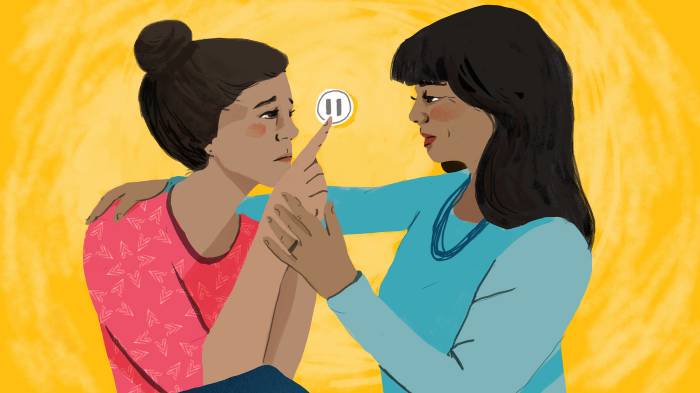While previous studies have discovered that women tend to be more empathetic than men, the researchers found no genetic factors to explain this, suggesting that gender differences are due to social conditioning or possibly the hormonal environment in the womb.
Researchers from the University of Cambridge, the Institut Pasteur, Paris Diderot University in Paris, and genetics company 23andMe evaluated empathy based on participants’ Empathy Quotient (EQ) scores. EQ uses self-reporting to evaluate both cognitive empathy (the ability to understand others’ thoughts and feelings) and affective empathy (responding to others’ emotions with an appropriate emotion.)
In the study, published in Translational Psychiatry on March 12, the researchers ran a statistical analysis known as genome-wide association studies to show that variations in genetics are linked with changes in empathy.
They looked at 10 million genetic variants, explains Varun Warrier, co-author of the paper and postdoctoral researcher at University of Cambridge’s Autism Research Centre, and found that these tiny variants collectively contribute to around 10% of differences in empathy. The total effect of genetics on behavior is likely larger—around 30%, according to twin studies—but the researchers were able to establish that 10% of variation comes from the specific 10 million genetic variants they studies.
“Any human attribute is partly genetic,” says Varun Warrier. “Even something like empathy that most people might think is not genetic does have genetic correlates.”
The influence of genes doesn’t mean that empathy is beyond our control. It might simply mean that those with a certain genetic predisposition find it harder to adjust their levels of empathy. “My hypothesis would be that people who are genetically predisposed to higher levels of empathy might find it easier to view social cues and increase their levels for being empathetic,” says Warrier.
The researchers found that the same genetic variants associated with less empathy are also linked with a higher risk for autism. Simon Baron-Cohen, professor of developmental psychopathology at University of Cambridge and co-author of the study, said in a statement that the research could help further understanding of autism. Difficulty in imagining others’ thoughts and feelings “can give rise to a disability that is no less challenging than other kinds of disability,” he added.
Warrier suggested that decoding the genetic predispositions for empathy could help determine whether certain people respond better to particular therapies. Cognitive behavioral therapy, for example, aims to improve interpersonal relationships and may well be dependent on empathetic awareness. Genetics could explain why it works better for some patients than others.
Ultimately, though genes have a considerable effect, they do not strictly dictate empathy; environmental and cultural factors also have considerable influence. “A large chunk seems to come from non-genetic factors,” says Warrier. Still, given that upbringing is a significant environmental factor, those who wish to blame (or credit) their parents for their empathy still have an excuse to do so.
Quartz
More about: empathy























-1745485667.jpg&h=190&w=280&zc=1&q=100)
























